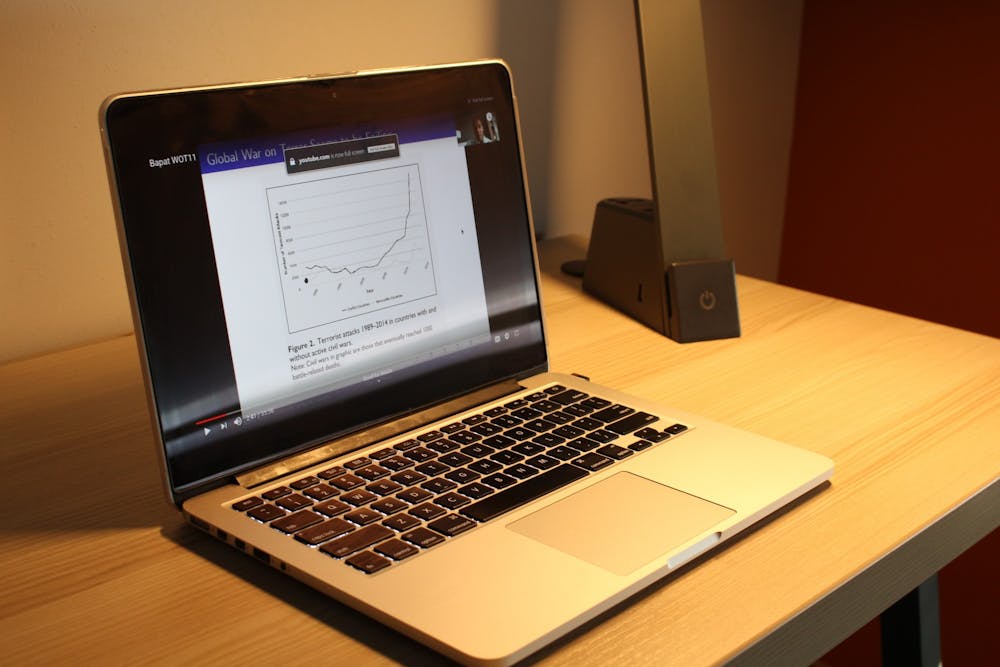Over the summer, UNC professor Navin Bapat was contacted by one of his colleagues through Facebook with a simple yet revolutionary idea — a proposal to create a nation-wide team of teachers who could each instruct what they know best.
This fall, 117 UNC students, along with students from Ohio State University, the University of Maryland, Dartmouth, and Columbia, among other universities, are participating in a new online multi-institutional course — POLI/PWAD 457, otherwise known as International Conflict Processes.
Bapat is a peace, war and defense professor and is one of 15 political scientists who have worked to use online instruction to its full potential and create this unique experience for students.
After contacting various scholars across the nation, Bapat, along with two of his colleagues, fellow professors Bear Braumoeller of Ohio State University and Sarah Croco of the University of Maryland, worked to recreate POLI/PWAD 457, assembling a speaker lineup of 12 other professors for the course — a group now referred to as the “dream team.”
“Given the onset of COVID and that many universities were going virtual in the fall, a bunch of us decided that we should put together a course where we utilize Zoom and each contribute a guest lecture,” Bapat said. “The idea was to turn what was a weakness this semester, given that we’re all separated, into a strength.”
In the past, POLI/PWAD 457 was taught with the goal of allowing students to survey and explore quantitative research on political conflict by reading and discussing articles by various renowned professors.
“This year’s version of the course keeps that original spirit, but it’s unique in that now these professors are actually talking directly to the students through lectures and question and answer sessions,” Bapat said.
This new spin on POLI/PWAD 457 immediately caught the attention of students. During class registration, Bapat sent out an email to all political science, global studies and PWAD majors.
Within 10 minutes, the highly anticipated course was full, leading Bapat to increase enrollment multiple times.




